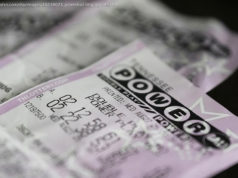2017 is practically begging you to take a trip. Airfares are down and gas prices are below what they were last year at this time.
Plus more than half of you are still not using all your vacation days, according to Bankrate.com , so the odds seem in your favor.
Of course, you would expect us to say that. But the next time you post to Instagram or send something by Dropbox , know that these ideas came to people while they were on vacation, according to Forbes.
So you want to be a gazillionaire? Take some time away. Besides the promise of riches you’ll accumulate when that vacation-born idea takes wing, here are 17 other things that may lure you to the lands of relaxation.
The concept for a new lodging brand called Jo&Joe may have you scratching your head at first. Is it for people who like hotels? Hostels? Who want all of the comforts of home without being there? Yes.
The lodgings, which AccorHotels hopes to introduce in 2017, are aimed at millennials. Or, as it says, the millennial-minded.
That explains why these accommodations will have spaces called the Playground (bars, restaurants, activities such as yoga) and Happy House (a kitchen/hangout area) and why its hoped-for clientele includes what it calls “love birds” (couples who want privacy), “solo socials” (looking for interesting, new experiential travel), “townsters” (people who live in the city and want to hang out at Jo&Joe) and “tribes” (several people traveling together — could be family, could be friends).
Where you sleep can be configured based on what kind of traveler you are because Jo&Joe is a kind of movable feast: Furniture on wheels means pieces you don’t need can be dispatched and what you do want can be rolled in.
It hasn’t said yet where its lodgings will be, although it does say it hopes for 50 of them by 2020. The uncertainty adds to the intrigue, but Paris wouldn’t be a way-out guess because Accor is based in France. Also think Europe; Accor’s media materials quote starting rates in euros (25 a night, or about $26). And how about L. A.? As the capital of the next big thing, we seem a natural fit.
Speaking of hotel prices, rates probably won’t increase much, according to American Express’ Global Business Travel Forecast for 2017. Unless you’re in California. Demand in the Golden State is “strong,” and if supply and demand rule — and they do — expect a bigger bill.
San Francisco, the report said, could see a 9% increase. You’ll probably also pay more in Seattle and Portland, Ore., less in Latin America.
Thanks to yield management — the practice by which rates fluctuate depending on demand — you’ll pay what you’re going to pay for a Las Vegas hotel with little control over it.
Add to that something else over which you have little control: resort fees, which have climbed to as much as $35 a day at several Strip properties , resulting in wailing and gnashing of teeth.
Plus hotels have finally figured out that parking was an untapped cash cow, so you’ll pay for valet and self-parking , some underway, some to be added this year. Almost reminds me of bag fees.
The bag fee is turning 10 in 2017, and it’s time to celebrate, sort of. In 2007 passengers paid $464.28 million in baggage fees, according to the Bureau of Transportation Statistics. By 2015 that figure had increased to $3.8 billion, the bureau said.
There are ways to circumvent bag fees that are more sophisticated than pretending you didn’t know your bag was too big and feigning surprise when an agent offers free gate-check.
For instance, there are airline co-branded credit cards, which often give you a checked bag for free (although this requires you to fly the airline on your card). You can fly Southwest, which doesn’t charge for the first two bags. Or you can ship your stuff to your destination. Carry-ons that don’t exceed your airline’s dimension limitations work too.
However you cope with bag fees, one thing is certain: Even though airlines are newly profitable, it’s unlikely they will walk away from nearly $4 billion. Would you? And besides…
In 2015, U. S. passenger airlines made $25.6 billion in profit after taxes, according to the Bureau of Transportation Statistics , about three times what they made in 2014.
It’s why you’re seeing new aircraft (an average of 66 new ones a year, according to an FAA report on the future of aviation, through 2036) and why you’ll see fewer of the old 747s and 757s, which are giving way to more fuel-efficient models the airlines now have money to buy.
The perks of airlines having money include food. When times are tight, airlines cut back on the niceties. In August 2008, Los Angeles Times wire stories reported, “United Airlines, struggling to curb losses from record fuel prices, will become the first U. S. carrier to stop serving free meals in the coach cabin of some overseas flights.” Continental (remember Continental?) stopped serving snacks in 2011, NBC News reported at the time, and saved $2.5 million a year.
United, American, Southwest and Delta all offered snacks in 2016. Unless things go south, you’ll still get a nibble in the new year.
As though we could, even at 35,000 feet. But we’d like to forget some of the really lousy ground-to-air Wi-Fi we’ve used and sworn at, not by, in the last several years.
Expect better connectivity in 2017 as airlines switch to satellite systems, which are as much as 20 times faster than the old ways, according to the Dallas News .
Airline profitability also may help us get through security faster. Partnering with the Transportation Security Administration , United, American and Delta are implementing automated bag screening that allows five bins (80% larger than the old) at a time. Faster and logistically smarter, it’s already in use at LAX’s United Terminal 7 and is coming to American and Delta in 2017. Money may not buy happiness but it contributes enormously to it.
Maybe. Keep your eye on the oil market. Do not yawn. The future price of your airline ticket depends on it.
A barrel of oil in December hovered around $51. That price has seesawed from almost $145 a barrel in July 2008 (almost $163 in today’s dollars) to $26.55 in January 2016.
But there is trouble on the horizon: OPEC has mandated a cut in production of more than 1 million barrels a day. It’s a slight reduction in the overall scheme, but no one has ever accused the oil market of stability.
About a month after the July 2008 spike in fuel prices an airline ticket to Washington, D. C., cost about $418 — about $469 in today’s dollars. In 2016 it was $344, according to the L. A. Times’ airfare chart.
As you’re thinking, “Gee, I’m flying practically for free in 2017,” remember that in 2008 add-ons were not quite as prevalent as they are now (bag fees, legroom, premium economy, meals, early boarding).
In 2017, look for more airline ticket-pricing models akin to those used by Spirit. Yes, travelers hate Spirit , studies show. But leisure travelers don’t hate saving money. So look to United, Delta and American for their version of “bare fares” that let you choose whether you want the niceties that keep airline travel from being like a ride on a Beijing subway.
Tap Portugal , which privatized in 2016, was recently touting a $389 round-trip fare from L. A. to Madrid for late March (partly a code-share with JetBlue, and by the time you read this, that fare may be gone). Its seats in the back of the plane don’t recline, and the legroom is a snug 28 inches. Whether you choose to buy your way out of legroom hell is up to you.
And a lot of competition helps a lot. We’ve seen the effect that bargain carriers Norwegian and Wow have had on fares to Europe. The same is happening in Asia, Travel Weekly says , to which we have seen some sub-$600 round-trip fares from LAX. The bargain landscape includes such carriers as Peach , AirAsia, Lion and more, which will keep downward pressure on prices, with an assist from cheaper oil.
The talk isn’t just about cheap fares. The talk is about talk. You have until Feb. 13 to comment on a proposed Department of Transportation rule (DOT-OST-2014-0002) about cellphone use aboard planes — but it’s not what you think, the DOT says.
Cellphone calls are currently outlawed, but there is some move to relax those rules and clarify others.






